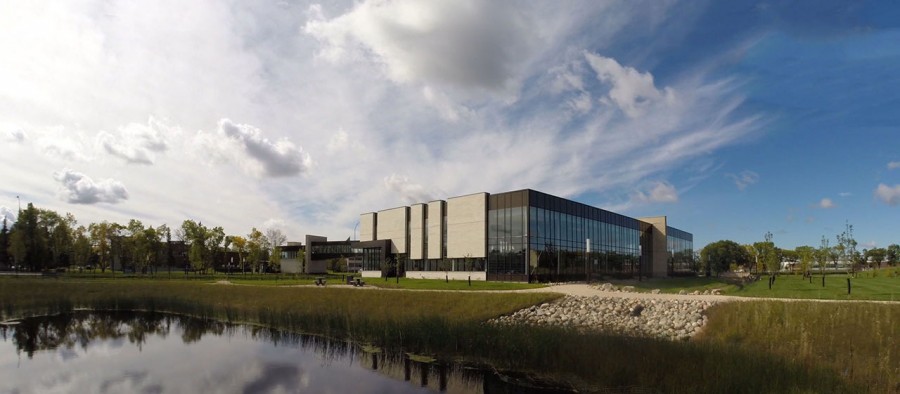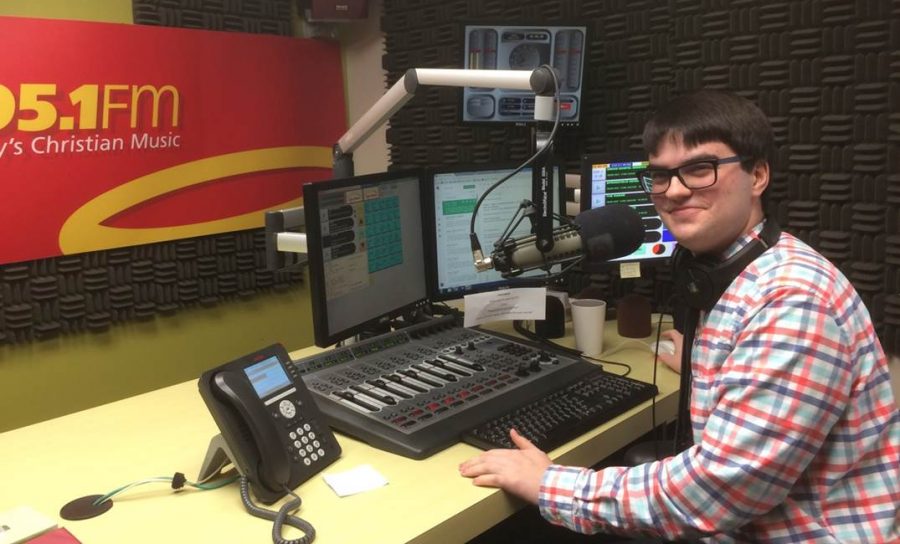
Brighton Thiessen behind the mic at CHVN
Your 18th birthday is supposed to be this great thing. You are celebrating that you are free from the clutches of your parents, and you technically become legal in Canada.
I spent my 18th birthday packing up my things and moving to a first floor dorm room at Poettcker Hall. I felt as though I was still a high school kid who was still too young to understand what goes on at university. That first year, I struggled in class, and I wondered why I even was going to school in the first place.
I considered dropping a couple of times, but there was that little itch in the back of my head saying that I should stay, and that your time at CMU would be worthwhile.
Fast forward to now, and I am graduating this year, and I am currently doing a practicum assignment working as an on-air host at CHVN radio in Winnipeg. I guess it makes sense for me considering I am a Communications & Media major with a Biblical and Theological Studies minor, and CHVN is the only Christian radio station in Winnipeg.
Looking back on my time here, I realized that every course I took at CMU prepared me to be an on-air host, which I didn’t think I could do at first. I guess the moment I realized was in my first-year Media Workshop class. One of our fun end-of-the-year projects was to come up with a cool 30-second audio commercial for the Carnaval BBQ restaurant at the Forks.
For some odd reason, I got picked to speak in a ridiculous cowboy accent.
So I am sitting in the recording booth and it’s not going very well. I decided to take it one step further by just overdoing the accent. Communications & Media Professor David Balzer comes over the loud speaker and says that was too much, but the whole class said, “No that’s perfect.” In that moment, I felt like I truly found my voice.
 I am grateful for the opportunity to have been a part of the CMU community as well. I’ve had the chance to learn from great professors, great staff members that will drop anything that they are doing to talk to you and to see how your day is going, and my fellow classmates who turn what could be a regular old university class into a fun-loving environment that you can immediately feel comfortable in. I don’t know if there is a better community than CMU.
I am grateful for the opportunity to have been a part of the CMU community as well. I’ve had the chance to learn from great professors, great staff members that will drop anything that they are doing to talk to you and to see how your day is going, and my fellow classmates who turn what could be a regular old university class into a fun-loving environment that you can immediately feel comfortable in. I don’t know if there is a better community than CMU.
I recently had a conversation with the program director at CHVN. He said, “When I first met you, I wasn’t sure this was going to work because you were quiet reserved individual who liked to keep to himself. Now, three months later, you are doing lots of on-air stuff for us, and it’s really worked out.” And then he said, “I like you a lot, and I kind of don’t want you to leave.”
Right now, I don’t want to leave CMU, but I know that my journey here is complete, and I have grown from a high school kid who sort of knew what he wanted to do, to being able to see that I can do anything that I put my mind to.
Brighton Thiessen is graduating in April from CMU’s Communications & Media program


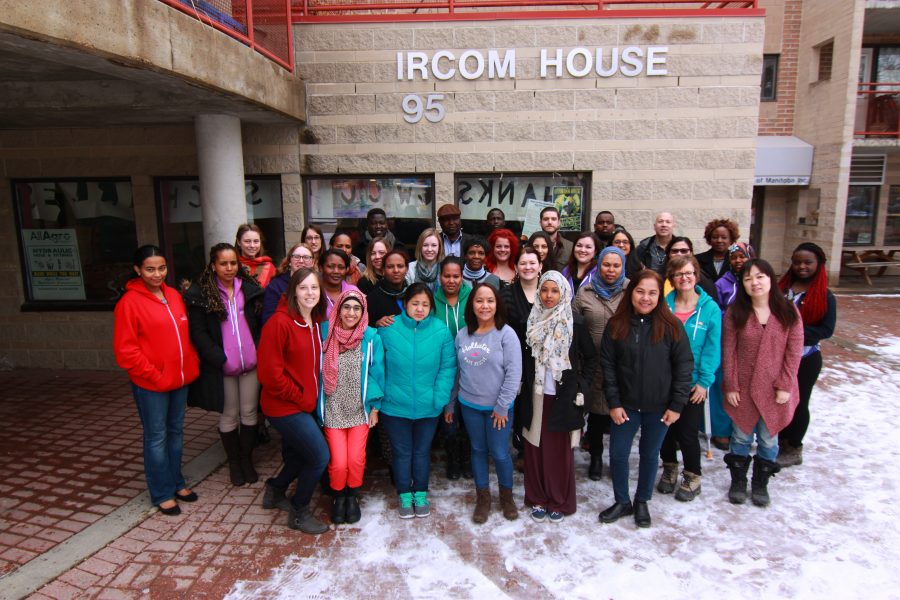
 My practicum took place last semester at the Immigrant and Refugee Community Organization of Manitoba, or IRCOM, as it is more commonly known. IRCOM, is a lot of things. It’s a safe and affordable transitional housing complex for newcomers. It is also home to a multitude of transitional aid programs for both IRCOM residents and members of the West End and West Alexander communities. These programs include English classes, finance classes, job connection services, countless youth and children’s programs, and much more.
My practicum took place last semester at the Immigrant and Refugee Community Organization of Manitoba, or IRCOM, as it is more commonly known. IRCOM, is a lot of things. It’s a safe and affordable transitional housing complex for newcomers. It is also home to a multitude of transitional aid programs for both IRCOM residents and members of the West End and West Alexander communities. These programs include English classes, finance classes, job connection services, countless youth and children’s programs, and much more.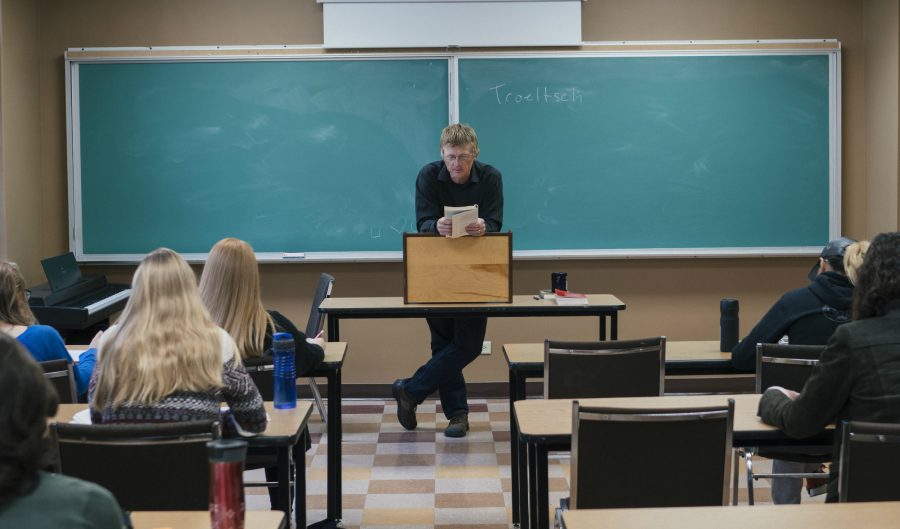
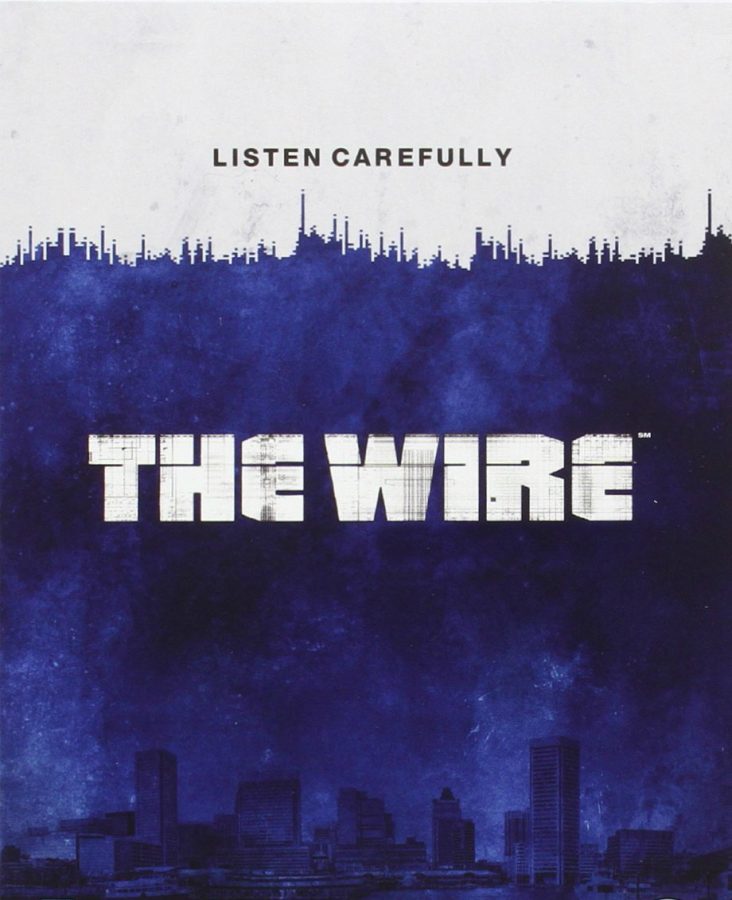 The Wire does this in both a shocking and brilliant fashion. It showed the utter failure of bureaucracy, and caused me to question my faith in humanity’s ability to organize ourselves. If that wasn’t enough, there were other events happening that were certainly not inconsequential, not the least of which was a significant election and the profound mass migration of refugees.
The Wire does this in both a shocking and brilliant fashion. It showed the utter failure of bureaucracy, and caused me to question my faith in humanity’s ability to organize ourselves. If that wasn’t enough, there were other events happening that were certainly not inconsequential, not the least of which was a significant election and the profound mass migration of refugees. Over reading week, I had the opportunity to attend the Mennonite Central Committee (MCC) student seminar in Ottawa. There were 30 students who attended from across Canada, including four from CMU and two more from Menno Simons College. The theme was Gender, Peace, and Conflict: Exploring the Intersection. We looked at how government organizations, non-profits, and individuals interact with this theme in their work.
Over reading week, I had the opportunity to attend the Mennonite Central Committee (MCC) student seminar in Ottawa. There were 30 students who attended from across Canada, including four from CMU and two more from Menno Simons College. The theme was Gender, Peace, and Conflict: Exploring the Intersection. We looked at how government organizations, non-profits, and individuals interact with this theme in their work.  actions and not enough financial contribution to women’s projects. But I was inspired by hearing these two passionate women who are advocating for policy change.
actions and not enough financial contribution to women’s projects. But I was inspired by hearing these two passionate women who are advocating for policy change.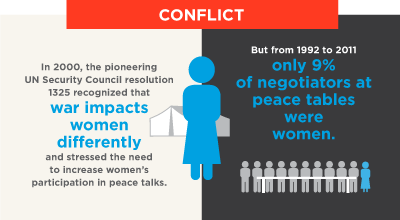 tiators in peace talks were women, despite the fact that a peace process in far more likely to succeed when women are included. It has left me wondering why it is so challenging to adopt an approach that includes women, both locally and internationally.
tiators in peace talks were women, despite the fact that a peace process in far more likely to succeed when women are included. It has left me wondering why it is so challenging to adopt an approach that includes women, both locally and internationally.